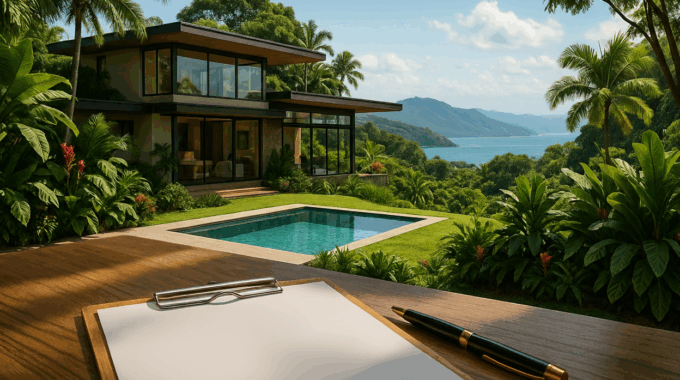Discover how to access significant funds with a Home Equity Loan Costa Rica. We offer competitive rates, flexible terms, and lower fees. Simplify your financing process today.
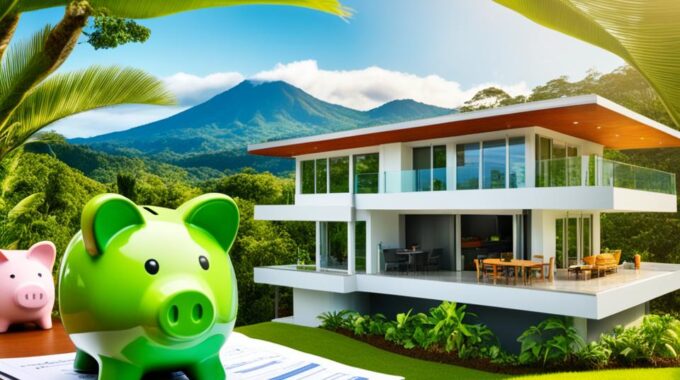
Ways to Finance a House in Costa Rica: Our Guide
Imagine living in paradise, but getting Costa Rica real estate financing seems tricky. It’s not simple like in familiar places due to a higher need for paperwork. Also, your financial past doesn’t count the same as back home. Yet, you can find ways to make it work. Options include seller financing, home equity loans, using self-directed IRAs, and traditional bank loans. It’s all possible with some effort.
Key Takeaways
- Costa Rican bank financing typically requires a down payment of 35-50%.
- Interest rates for U.S. dollar loans in Costa Rica range from 7-10%, while loans in colones can go up to 20%.
- Private banks in Costa Rica offer financing to foreigners for vacation homes with terms up to 20 years, 30-50% down payment, and interest rates of 8.5-10%.
- Private lenders may finance up to 70% of the property value with interest rates of 8-16% and loan terms up to 15 years.
- Seller financing in Costa Rica often includes 1-3 year terms, 6-9% interest rates, and a minimum 50% down payment.
Introduction to Costa Rica Real Estate Financing
Buying property in Costa Rica involves steps like understanding mortgage options. This is key for both locals looking to invest and expats wanting a new place. Knowing about the local mortgage scene is vital whether you want your dream property or a tropical escape.
Challenges of Financing as a Foreigner
Getting a mortgage in Costa Rica is tough for foreigners. Local banks often can’t check your residency, work background, or financial record. Plus, the language gap makes things harder.
Importance of Understanding Financing Options
It is vital to know your financing options in Costa Rica. From traditional loans to private or seller financing, each choice matters. This knowledge helps make smarter, more successful moves towards owning a home in Costa Rica.
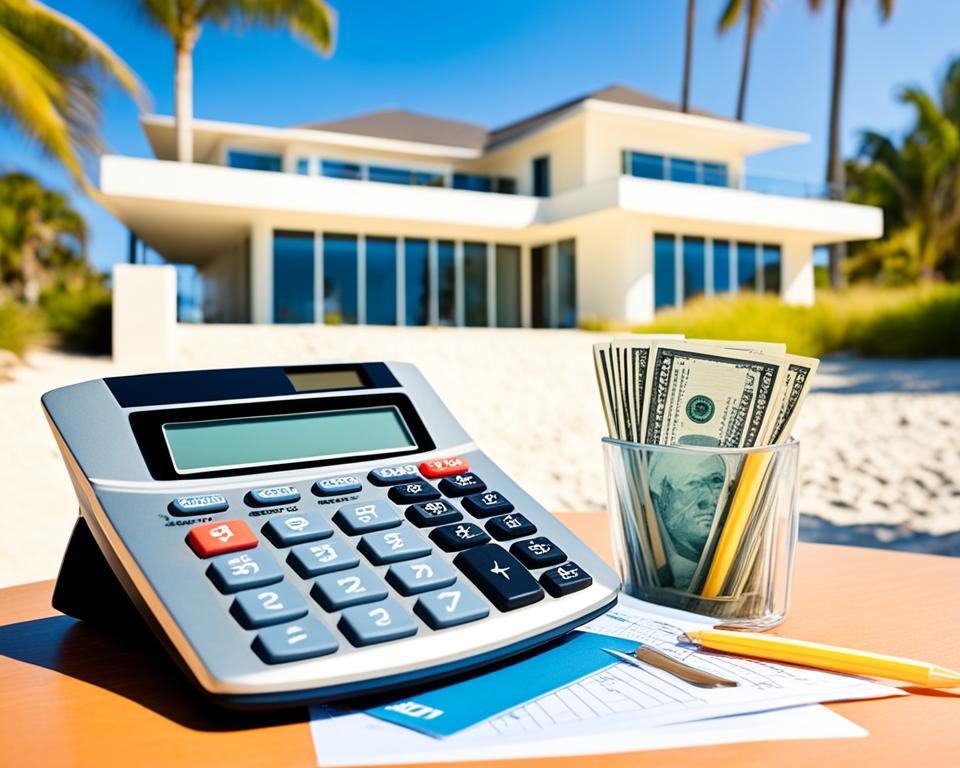
Costa Rica’s Real Estate Market Overview
Costa Rica’s real estate market is filled with different options. It suits many budgets and lifestyle needs. A property’s price can change a lot based on where it is, its size, type, the area’s growth, and how much tourists visit.
Location and Demand Dynamics
In places like Guanacaste or Jaco, beachfront homes are pricier because many people want them. The same goes for homes in the Central Valley areas. They are attractive to buyers from near and far looking for a lovely place or a smart investment.
Property Types and Prices
The cost of a property can go up based on its size, type, and what features it has. Bigger homes in good locations usually cost more. On the other hand, condos or townhouses might be a better choice for those on a tighter budget.
Infrastructure and Tourism Influence
In Costa Rica, better roads, utilities, and a strong tourism industry can make properties more valuable. These upgrades can lead to higher property demand and prices in some areas. Thus, as Costa Rica develops more, certain places may become more popular and expensive.
The variety in Costa Rica’s market means there’s something for everyone. Whether you want a home by the beach, in the city, or a place where your money can grow, options are plenty.
Conventional Mortgage Options
In Costa Rica, there are many ways to get a mortgage for a home. Each option has its own rules and what you need to be able to get it.
Fixed-Rate Mortgages
A fixed-rate mortgage keeps the interest rate the same the whole time. You need to show you have a steady income and a good credit score. You also have to put down 20% to 30% of the home’s price. It’s a good choice for those who want a stable way to pay for their home over a long period.
Adjustable-Rate Mortgages
With an adjustable-rate mortgage, the interest rate can change. It’s often linked to a standard interest rate like the Prime Rate. These are good for people who don’t mind a bit of risk, and understand their payment could go up. The good side is that the starting payments might be lower.
Government-Backed Mortgages
Costa Rica also has loans backed by the government, like the CCSS. These loans help with lower down payments and better interest rates. They offer more support for certain buyers. This is a great way for some buyers to afford a home in Costa Rica.
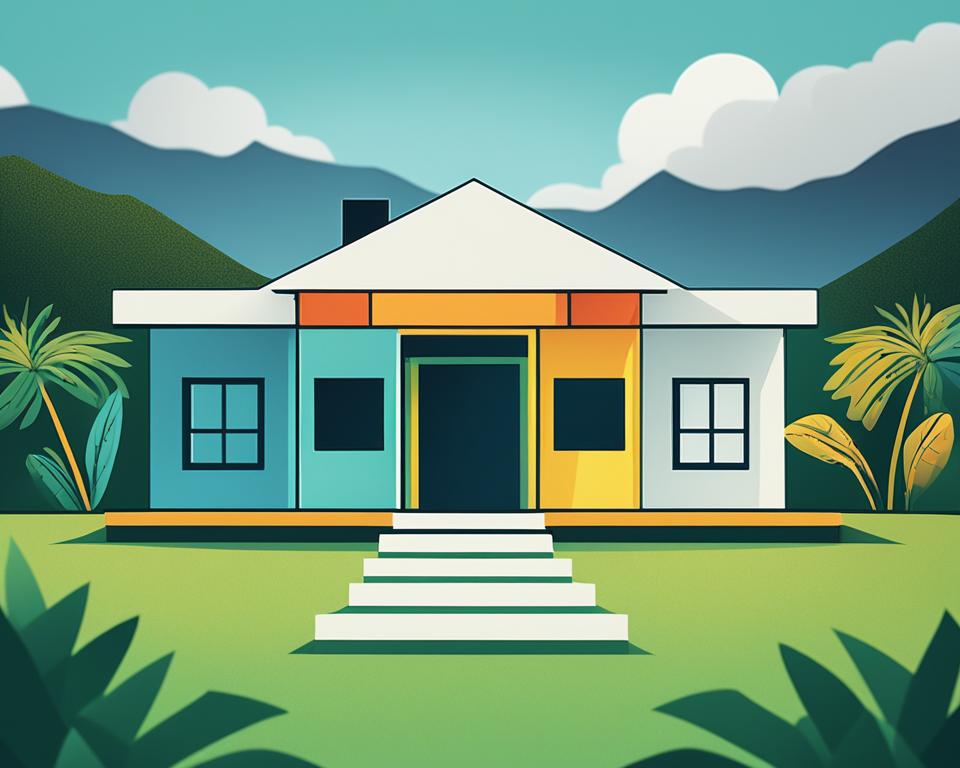
ways-to-finance-a-house-in-costa-rica
Figuring out how to pay for a house in Costa Rica might seem tricky, but there’re lots of ways to achieve your goal. You can use home equity loans, interest-only loans, or even work out a deal directly with the seller. Let’s dive into these options for getting your own slice of paradise.
Home Equity Loans
Home equity loans, or second mortgages, are a great choice for financing in Costa Rica. They let you use the value of your home back in your home country. This means you don’t have to depend only on your Costa Rican finances. It’s a big help for expats or investors who might find it hard to get a traditional mortgage.
Interest-Only Loans
Interest-only loans are also worth looking at. With these, you pay only the interest at first. This keeps initial costs lower, which might help you get a home sooner. It’s good if your income changes, or if you plan to sell or refinance relatively soon.
Seller Financing
If you’re buying in Costa Rica, consider seller financing. Here, the seller of the home acts as the bank. You usually make a 40-50% down payment and pay off the rest in 1-3 years. Interest rates are often between 5-7%. It’s a way to buy a home when traditional bank loans are hard to get.
With these options and the beauty of the Costa Rican real estate market, owning a home there becomes more doable. Research your choices and find the right professionals to guide you. Soon, you could be unlocking the door to your very own place in paradise.
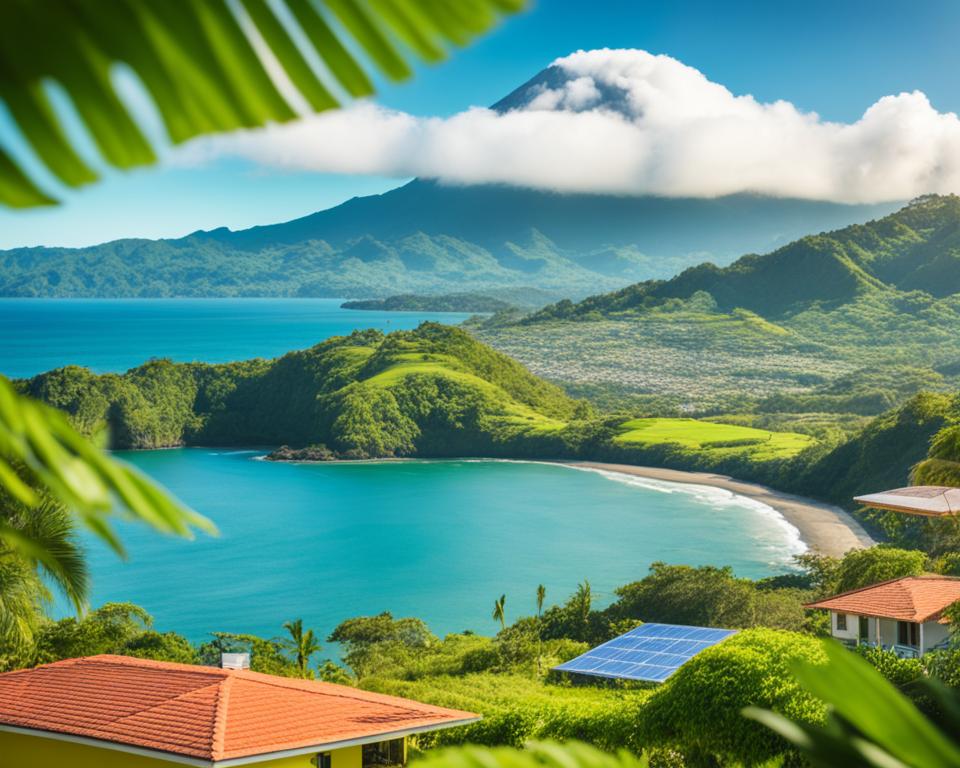
Mortgage Process and Requirements
Buying a home in Costa Rica is a big step, especially the first time around. The process can seem complicated, mainly if you’re not familiar with how banks there work. For people to get a mortgage in Costa Rica, they need to show a lot of paperwork. This paperwork includes the home’s purchase agreement, proof of income, ID, your Social Security number, bank statements, and more.
Documentation Checklist
Getting a mortgage in Costa Rica means having all your documents ready. You’ll need the sale agreement, your income proof, and personal ID. Also, include your Social Security details, bank records, and insurance for the home. There are several other documents needed too, all concerning the costa-rica-mortgage-lenders and costa-rica-real-estate-financing.
Role of Mortgage Brokers and Real Estate Agents
Using a skilled mortgage broker or trusted real estate agent makes things easier. They help with all the paperwork and understand the steps to buy a property in Costa Rica. These experts are valuable for anyone looking at buying-property-abroad or finding foreign-investment-properties. They can also find the best loan deals, whether you’re interested in cross-border-mortgage-solutions or financing-second-homes-overseas.

Mortgage Rates and Costs
The mortgage rates in Costa Rica change due to many reasons. These include the economy’s health, inflation, and the world’s financial health. From 2001 to 2023, the usual interest rate for a mortgage in Costa Rica was 14.04%. Rates have varied between 6.11% and 26.28%.
Foreigners can get financing from private banks at rates from 8.5% to 10%. Meanwhile, private lenders might offer between 8% and 16%. It’s crucial for borrowers to understand the many fees tied to getting a mortgage in Costa Rica. These include fees for starting the loan, valuing the property, legal work, and closing costs. These fees can greatly change the total cost of owning a home.
Interest Rate Trends
Interest rates in Costa Rica have gone up and down with the economy. The usual rate is 14.04%. But, private banks and lenders might offer better rates, between 8.5% and 16%. This depends on things like how much of the house’s value you’re borrowing and your financial situation.
Additional Fees and Closing Costs
Mortgages in Costa Rica come with extra fees and closing costs. These can make owning a home more expensive. It’s important for borrowers to know about these fees upfront. This way, they can plan their budget better for home buying in Costa Rica.
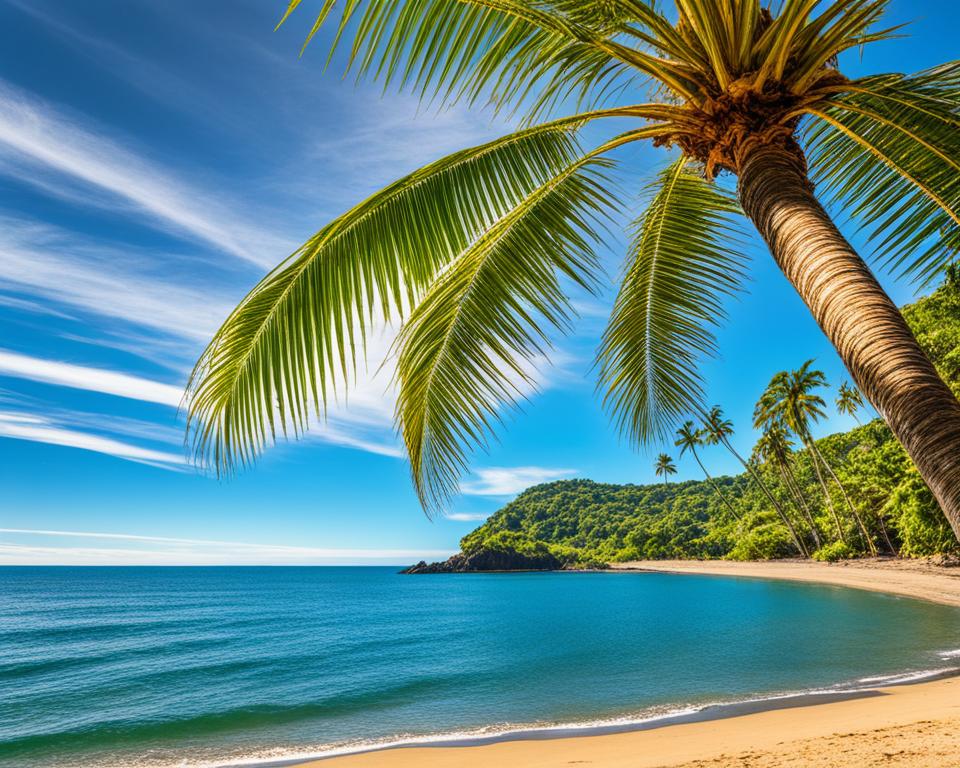
Real Estate Investment Considerations
Properties in Costa Rica are very popular right now. They attract buyers from all over the world. This high demand is good news for those investing in real estate there. Plus, there are financing options like seller financing. This helps buyers, especially those who can’t afford a big down payment, to get a property. It makes real estate more available to a wider range of people.
High Demand and Market Access
Costa Rica’s real estate is in high demand, especially among global buyers. Private financing makes it easier for buyers with less cash to enter the market. This includes unique financing like private, builder, and creative short-term options. These help maintain the appeal and investment potential in Costa Rica’s real estate over the long haul.
Seller Financing Benefits
Private financing from sellers can speed up the selling process. It also enhances the buying terms, even without extensive property checks. This makes a property sell quicker It’s because sellers can offer more flexibility and better terms. This, in turn, attracts more buyers to their properties.
Long-Term Viability
Costa Rica offers a wide range of financing options for real estate buyers. This makes it easier, even for foreigners, to invest in property there. Knowing the various options and working with experts is key. It ensures a good handle on property acquisition and sustains the appeal of Costa Rican real estate as a good investment.
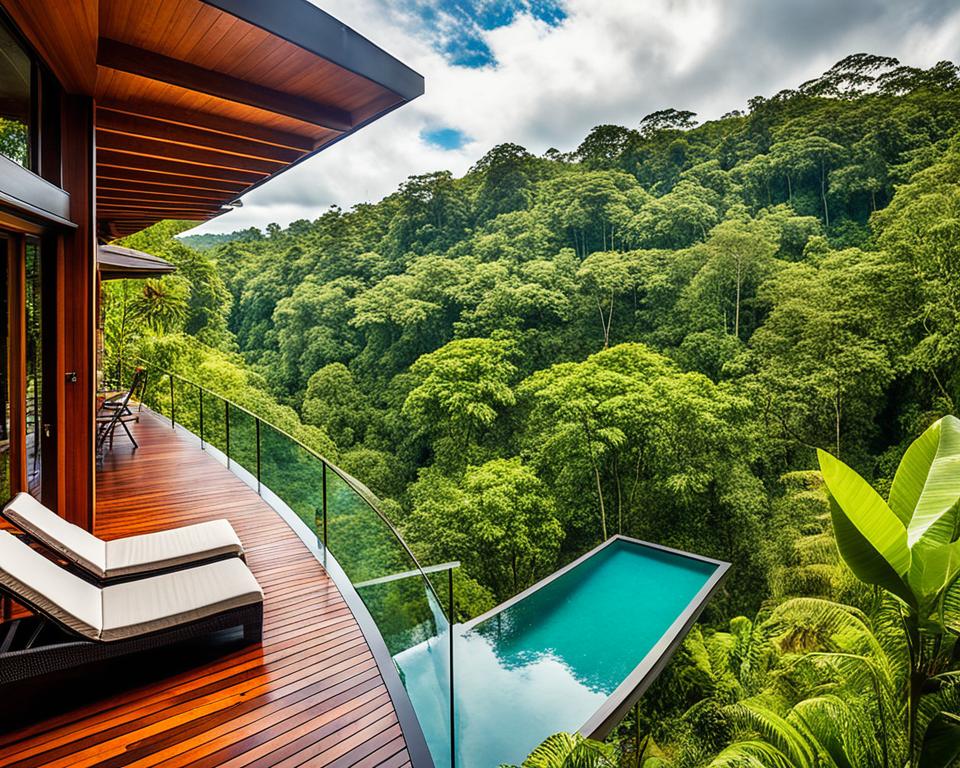
Conclusion
Looking to buy real estate in Costa Rica? You have many ways to finance it. You could get a mortgage, seek private funding, or find alternative finance sources. Each choice has its own perks and things to think about.
It can be tricky, especially for foreigners, to get a mortgage. But not impossible. Working with professionals is key to exploring all options and to turn your property vision into reality in Costa Rica.
Call To See If You Qualify For a Loan Today
Are you ready to buy a home in Costa Rica? Contact us today to check if you can get a loan. We help with all kinds of properties, including homes, businesses, and investments.
We offer various finance options, like mortgages and private funding. Our goal is to find the best way to make your Costa Rican property dream come true. Reach out to us anytime for help.
FAQ
What are the main options for financing a house in Costa Rica?
There are several ways to finance buying a house in Costa Rica. You can use fixed-rate or adjustable-rate mortgages. Government-backed mortgages and home equity loans are also possible. There are interest-only loans and seller financing too.
What are the challenges of getting a mortgage as a foreigner in Costa Rica?
It’s hard for foreigners to get a mortgage in Costa Rica. Local banks need lots of info that can be tough for non-locals to provide. The language barrier makes things more complicated.
How does the Costa Rican real estate market influence financing options?
Financing options change based on where the property is and what type it is. Beachfront homes and popular tourist areas often need different financing. This is because they tend to be more expensive.
What are the typical requirements for obtaining a mortgage in Costa Rica?
To get a mortgage in Costa Rica, you usually need the purchase agreement copy and proof of income. Don’t forget identification, a Social Security number, and bank statements. Insurance and property documents are also required. A mortgage broker or real estate agent can make this process easier.
How do mortgage rates and costs in Costa Rica compare to other countries?
Mortgage rates in Costa Rica are usually between 8.5% and 10% at private banks. Private lenders might charge 8% to 16%. There are also fees like origination, appraisal, and legal fees, plus closing costs. These can make owning a home more expensive.
What are the benefits of pursuing alternative financing options in Costa Rica?
For buyers facing mortgage challenges, alternative financing can be a solution. It includes home equity loans, interest-only, and seller financing. Buyers can enjoy more flexible terms and lower up-front costs.
How can the high demand for Costa Rican real estate impact financing options?
A lot of people want to buy property in Costa Rica because of its beauty and tourism. This demand makes private financing, like seller financing, more available to buyers.
Source Links
- https://bluewaterpropertiesofcostarica.com/blog/costa-rica-real-estate-financing-4-options/
- https://osatropicalproperties.com/blog/real-estate-financing-in-costa-rica-can-you-get-a-mortgage-for-a-home-in-costa-rica
- https://www.remax-oceansurf-cr.com/financing-for-foreigners-in-costa-rica
- https://crie.cr/financing-a-property-in-costa-rica/
- https://gapinvestments.com/en/real-estate-development-loans-in-costa-rica/
- https://www.specialplacesofcostarica.com/blog/how-to-get-a-mortgage-in-costa-rica/
- https://www.gapequityloans.com/en/costa-rica-home-equity-loans/
- https://www.gapequityloans.com/en/3-ways-you-can-finance-a-house-in-costa-rica/
- https://www.gapequityloans.com/en/construction-loans/
- https://www.gapequityloans.com/en/equity-loans-faq/
- https://www.tresamigos-cr.com/financing-property-costa-rica
- https://gapinvestments.com/en/secure-loans-in-costa-rica/
- https://www.gapequityloans.com/en/loan-application-costa-rica/
- https://www.gapequityloans.com/en/costa-rica-home-equity-loans-guide/
- https://www.gapequityloans.com/en/how-to-finance-a-home-in-costa-rica/
Article by Glenn Tellier (Founder of CRIE and Grupo Gap)


